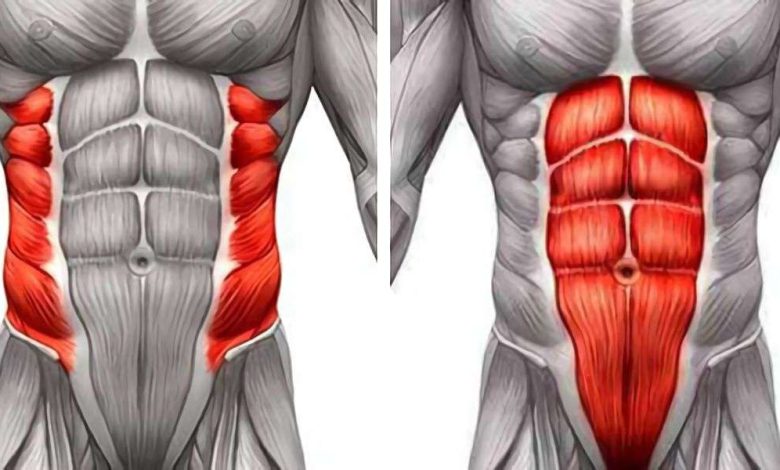Rigidity of the abdominal muscles: What's it, symptoms, diagnostics, treatment, prevention

Symptoms: Rigidity of the abdominal muscles; Rigidity of the abdominal muscles
Abdominal rigidity; Rigidity of the abdomen
What is abdominal stiffness
Rigidity of the abdominal muscles is the tension of the muscles in the abdomen, which can be felt when touched or pressed.
When there is an inflamed area inside the abdomen, when pressing on the abdomen, the pain intensifies.
This symptom can also be caused by fear or nervousness about pressure on the abdomen by the doctor when diagnosing (palpation), but it shouldn't hurt.
If you feel pain when you press on your stomach, and you tense your muscles, to prevent increased pain, this, probably, caused by abdominal disease. It may affect one or both sides of your body..
Rigidity of the abdominal muscles can cause the following conditions:
- Pain in the abdomen
- Nausea
- Pain
- Swelling
- Vomiting
Causes of stiff abdominal muscles
Causes of tight abdominal muscles may include:
- Abscess inside the abdomen
- Appendicitis
- Cholecystitis, caused by gallstones
- Opening, which can form in the wall of the stomach, small intestine, colon or gallbladder (perforation of the gastrointestinal tract)
- Life trauma
- Peritonitis
When to See a Healthcare Professional for Abdominal Stiffness
Seek immediate medical attention, if you experience pain even with light pressure on the abdomen.
What will the doctor do when diagnosing stiff abdominal muscles
Probably, you will be referred to the emergency room.
The health worker will examine you. This may include a pelvic exam and, perhaps, rectal examination.
The health worker will ask questions about your symptoms, eg:
- When did abdominal pain first start??
- What other symptoms do you have with abdominal stiffness?? For Example, you have a stomach ache?
You may be scheduled for the following tests:
- Studies of the stomach and intestines using barium (eg, upper gastrointestinal series)
- Blood tests
- Colonoscopy
- Gastroscopy
- peritoneal lavage
- Fecal
- Urine
- X-ray of the abdomen
- Chest X-ray
You, probably, will not give painkillers, until a definitive diagnosis is made. Painkillers can hide the symptoms of the disease.
Sources
Ball JW, Dains JE, Flynn JA, Solomon BS, Stewart RW. Abdomen. In: Ball JW, Dains JE, Flynn JA, Solomon BS, Stewart RW, eds. Seidel’s Guide to Physical Examination. 9th ed. St Louis, MO: Elsevier; 2019:chap 18.
Landmann A, Bonds M, Postier R. Acute abdomen. In: Townsend CM Jr, Beauchamp RD, Evers BM, Mattox KL, eds. Sabiston Textbook of Surgery. 21st ed. St Louis, MO: Elsevier; 2022:chap 46.
McQuaid KR. Approach to the patient with gastrointestinal disease. In: Goldman L, Schafer AI, eds. Goldman-Cecil Medicine. 26th ed. Philadelphia, PA: Elsevier; 2020:chap 123.
